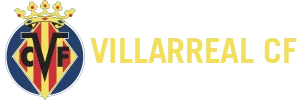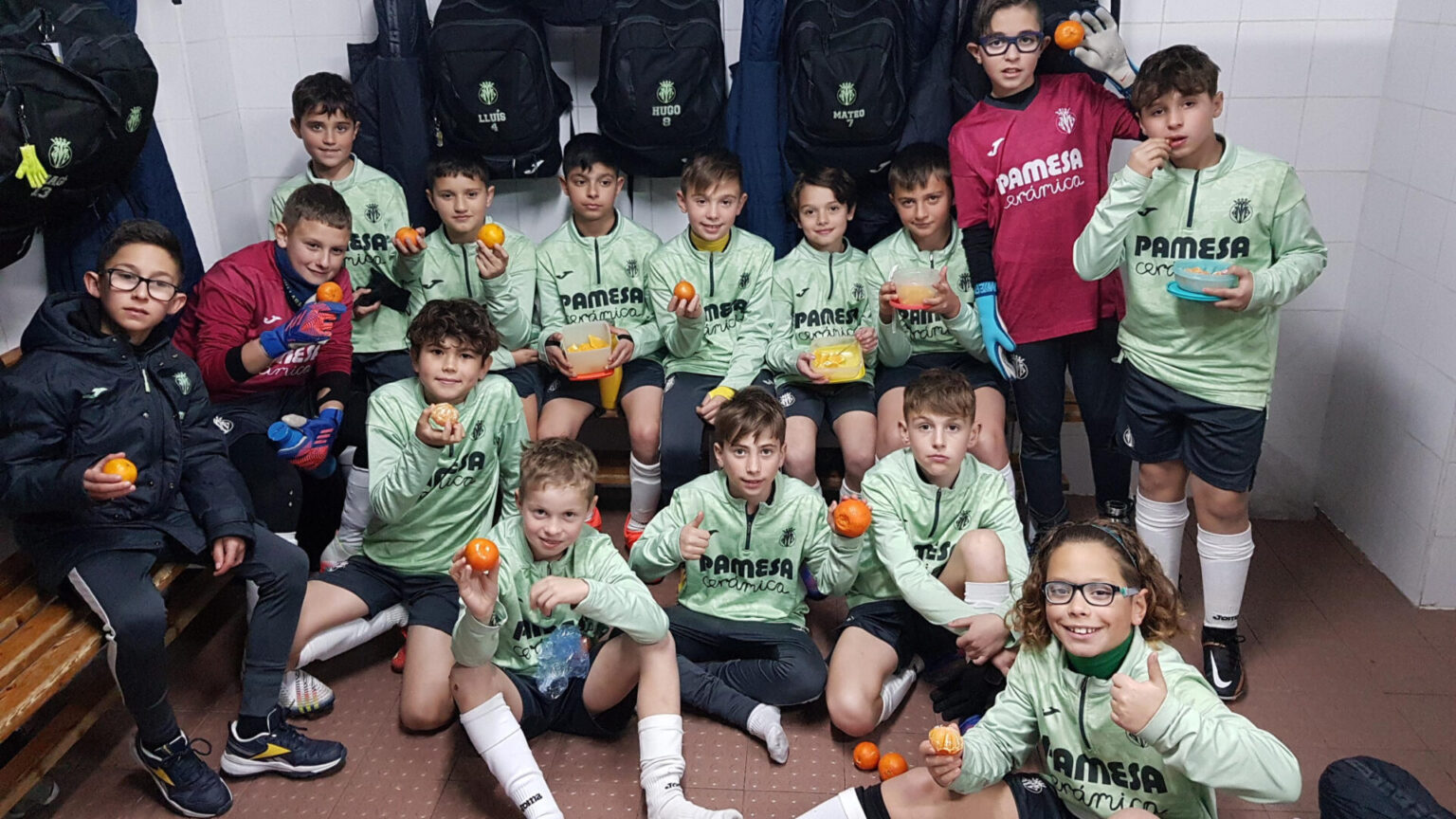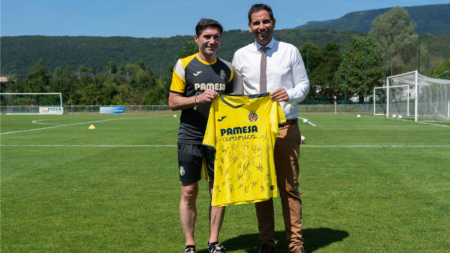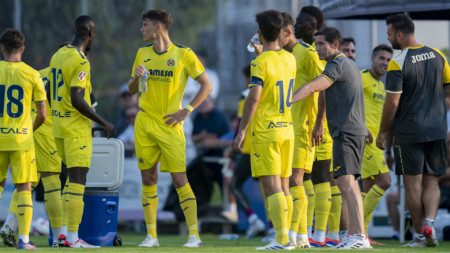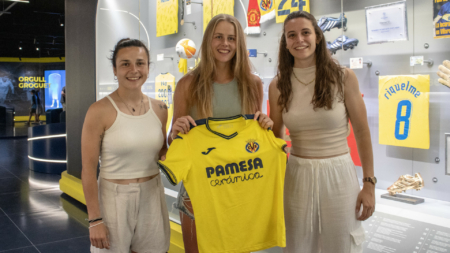Villarreal has launched nutrition workshops for its 8-a-side football players so that they can start to value it from the very beginning
When it comes to youth, methodology and comprehensive training, Villarreal always stands out. The learning of its youngest players both in sporting aspects and off the pitch is considered vital for the Yellows and nutrition is one of the pillars that underpins this extra training.
Héctor Usó, director of the Submarine’s medical services, explains: “At Villarreal, nutrition is a fundamental pillar. We focus on following our project and, from the first day that Fernando (Roig Negueroles) arrived at Villarreal, it was established that nutrition was a fundamental pillar for the athlete and we follow that process and that path.”
Now, the Yellows Academy’s 8-a-side players, with the help of the club’s Medical Services and accompanied by their coordinators and coaches, are receiving nutrition workshops to learn what to eat and why, and to gain autonomy in this extremely important area for the Yellows team.
Creating a culture of nutrition
One of the Submarine’s doctors in charge of this training, Miguel Pérez, says: “The idea of the nutrition talks came about because an athlete has to be trained both on a sporting level and on a hidden work level, the work that is not seen and of which nutrition forms part.”
This is how these workshops were born, in which the children are given basic training, they are explained which food group the food belongs to or what they have to eat before and after a match, and they conclude with a series of games “so that they can show what they have learned or not learned in the activity”, Pérez points out.
As the deputy coordinator of 8-a-side football, Karim Hamidi, points out, ” The workshop is aimed at the autonomy of the players, so that they are capable of mastering different resources and nutritional habits, above all, aimed at their future, so that in the future they do not fall into bad habits or eating errors.” Hamidi adds: “One of the keys is to justify why it is better to follow these nutritional guidelines, to get them used to them and make them think about it.”
On the importance of why, Usó gives the key to creating a culture of nutrition in the youngest members of the academy: “It’s not just a question of the kid knowing what to eat and what not to eat at each training camp, but it’s important for him to know why he has to eat what he eats. More than knowing what to choose, it is important that they understand why. We have to create a culture and awareness of nutrition in these children.”
The role of families
As the training is for the youngest players, it is essential that the parents of these young footballers are involved in the workshops. “On a day-to-day basis, the players live at home with their parents and end up eating what is made for them at home,” Pérez stresses. As Hamidi sums it up: “Working with such young kids also means that we can go to their homes and involve all the families and try to reinforce the messages we send out from the club. So that they eat fruit and have a good pre and post-match diet. All these things add up to what we call invisible training.”
However, “One of the positive aspects is that they know what to choose when they go to tournaments in hotels, so they can have more autonomy and learn to control their nutrition by themselves”, adds the doctor.
The importance of support from the coaching staff
The workshops and the guidelines of the club’s health workers would be meaningless without the work of the coaching teams of the sides involved, who monitor the entire yearly nutritional follow-up.
“In the end what we are doing is educating the players, it is clear that the game is very important but they also have to eat well, sleep well and relate well with their teammates. The coaches are day-to-day companions who are with the players, they are always on top of the players. That’s why, in terms of nutrition, we have included a series of dynamics. For example, if a boy brings fruit, points are added, if he doesn’t, points are deducted, so that the reward is for work and continuity,” argues the assistant coordinator.
In this sense, the director of Medical Services also endorses the importance of the coaches: “The coordinators and technicians are vital. Without them it would not be possible. The impact that nutrition can have in the sports area is thanks to them, who are the ones who are on top of the players so that they fulfil all their nutritional goals.”
Thus, thanks to the work of different departments united for a common goal, the Yellows Academy also excels in nutritional training and the young stars gain autonomy in this fundamental aspect for performance while learning and enjoying themselves on the green fields of the José Manuel Llaneza Training Ground.
